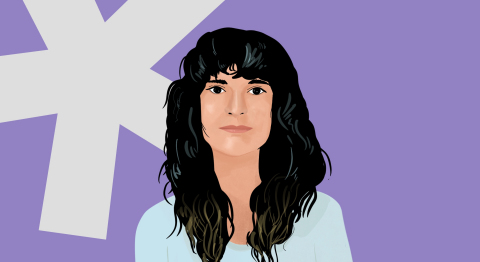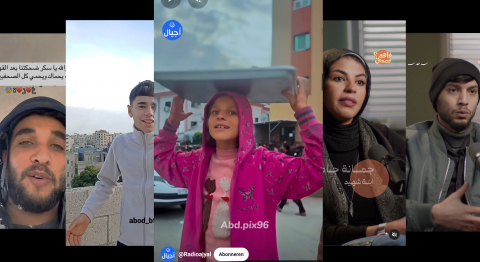Mehreen Afzal has been deployed for the Somali emergency for a period of two/three months as a Protection Officer for UNHCR, Dadaab, Kenya.
Superhumans, celebrities and God is great in Dadaab
Time to take stock of the past five weeks in Dadaab. Have lost track of time, am completely out of touch with people in my life. Family, friends, how are you all? News from around the world, urban activities and entertainment are a distant and fading memory. My world is, and firmly remains, grounded in the dust storms of Dadaab, the bumpy road to Ifo camp, the suspicious goat meat I eat for dinner, the sound of generators…I can go on.
For those of you that think Dadaab is dull, think again. This is meant to be a two month parenthesis in my life but am beginning to realise that it represents much more — a tough experience, a steep learning curve, a welcome moment of self discovery and a sense of accomplishment.
Abdi Noor and Mohammed
I want to dedicate part of this blog to the Somali “incentive workers” I am in contact with day in day out at the reception and registration center, in the camp and on the phone. Let me introduce you to two of my favorites: Meet Abdi Noor and Mohammed, twenty something year old Somali men who arrived in Dadaab in the early nineties as young boys. They are both soft tempered, good natured and disciplined.
While both began as interpreters, their aptitude and work ethic soon promoted them to ‘do-ers of everything”. They are the backbone of the operation and without them I would all lost. Mohammed takes the loudspeaker in the morning and explains the procedure at reception while Abdi Noor arranges the families by size and screens those that are vulnerable and expedites their referrals to specialized agencies as well as their registration.
They live in Ifo camp, in the older blocks that have since been transformed to villages with schools, shops and more sustainable housing. They don’t have it easy, not only because they work seven days a week but also because they have a fair deal of authority, have to make difficult and often unwelcome decisions and are held accountable for the discontent of the refugees or the host community. In recent times Mohammed has had to put up with threats by host community people who were trying to trick the system into thinking they are new refugees from Somalia: the benefit for them is the food and assistance they would receive in the drought stricken environment of Dadaab.
Superhuman
Most incentive workers have never left Dadaab. I asked them the other day what it was like making the journey from Somalia to Kenya. They smiled, unaffected by the question if a bit amused that I was asking about them. The journey, much like that of the current arrivals, was on foot. They recall the times they begged their mothers to stop walking for a while, not to carry the jerry cans and floor mats as they braved the several hundred kilometres into Kenya. There isn’t a hint of resentment or sadness in their manner – the delivery of information is factual — childhood was very difficult but now we are working for refugees and that is a good thing.
They speak English fluently having attended secondary school in the refugee camps. When I ask them whether it is hard to have to re-live their past through the stories of new arrivals, they shrug their shoulders: ”No it isn’t difficult, these are our brothers and sisters and we are here to help them.” Just when I begin to find them to be super human they confess that they are envious of their friends, the fellow refugees who are now resettled in the US, Canada, Norway, Sweden. Through Facebook they have come to learn about urban environments, the quirks of occidental living and they all want a piece of the action.
God is great
Somali people and culture baffles me in the negative sense as well. We’re having trouble getting sick refugees to the hospitals even when they are located close to the new tents. I’ve seen extremely malnourished children with viles of goat blood wrapped around their necks. When I ask the parents why they refused to take the children to hospital, particularly when we have an ambulance waiting to collect them right outside — they blankly state that their children are getting better, that god is great and the future is in his hands.
It takes almost an hour of counseling each family to convince them to get in the ambulance, and when they finally do and drive away to the clinic, I wonder how long they will remain in the wards before taking their sick child back to the makeshift shelter to watch them die. When walking around the outskirts of Ifo, there is a line of fresh graves every day maybe ten metres outside the homes: small dusty mounds with arid branches placed over them as protection from the wind.
Measles also seems to be a cause of death in the camps. I’ve witnessed elderly women being washed in their homes as they lie motionless, a sweet, dense, sickly smell surrounding them. When health workers arrive to take an elderly woman to hospital, again after long hours of persuasion with the family, they check her eyes and find she has lost much of her eyesight as a result. A few days and two injections earlier would have saved her vision.
So what is this reticence for medical care which is both free and readily available in the camps? Why do we engage partner agencies to step up the services provided, to put up more structures, to have more vehicles, to establish a coherent referral system for medical cases if the Somalis themselves are fighting against treatment? And why are they fighting, what do they believe? I am yet to get to the bottom of it: a mixture of fatalism (Allah is great and his decision prevails), traditional belief in natural medicine (how goats blood smothered over the child is curative is still unknown to me) and a touch of resentment/helplessness of their condition.
Time
Notwithstanding the difficulties, I’ve enjoyed walking in the camps, finding pleasure in the children, playing hide and seek in the lull while waiting for an ambulance to arrive, for community leaders to gather for a meeting, for the car to pick me up. There is actually a lot of waiting around, I feel. I’ve come here on emergency and even when the working hours are long and one day blends into another.
But when I’m out there, walking around in the camps it can’t help but think that time could be used more effectively. Perhaps that is my Germanic up-bringing, time is of the essence, what can I pack in modest periods of time, what more can be accomplished if I move faster, think quicker, rush, speed, haste. Working in a field environment requires a conscious lowering of the blood pressure, sitting back and looking around, eyes and ears peeled for difficulties that can be addressed in the (slow) immediate term.
Celebrities
I had a few interesting celebrity run ins of late. The Danish Crown Princess and her entourage was around Ifo reception today as was Hollywood’s epic Mia Farrow. Not entirely distasteful experiences, just a lot of planning and show involved. The body guards, the media, the agencies all circling the individuals as they try and get a glimpse of the individual lives resting in the waiting area of Ifo reception.
I suppose their need to absorb the life story, and relate it to something real and tangible in their own is normal. “I too am a mother and can relate to the needs of women and children.” I’m not complaining though, there is much to be said of visibility and communication, and these “famous people” can attract the public attention better than any of us.
So the experience continues to touch, affect, disturb and resonate with me and my sensibilities. I am completely absorbed in my existence here, couldn’t imagine another place I would rather be, people I would rather be speaking to and sharing with. Whatever it is that is happening in my head is making me stronger and happier. And I am more committed to continuing in this direction almost at any cost.
Mehreen, reporting another few weeks from the frightening, nonsensical yet magical place that is Dadaab.
Maak MO* mee mogelijk.
Word proMO* net als 2793 andere lezers en maak MO* mee mogelijk. Zo blijven al onze verhalen gratis online beschikbaar voor iédereen.
Meer verhalen
-
Nieuws
-
Nieuws
-
Nieuws
-
Column
-
Analyse
-
Analyse













 Oxfam België
Oxfam België Handicap International
Handicap International